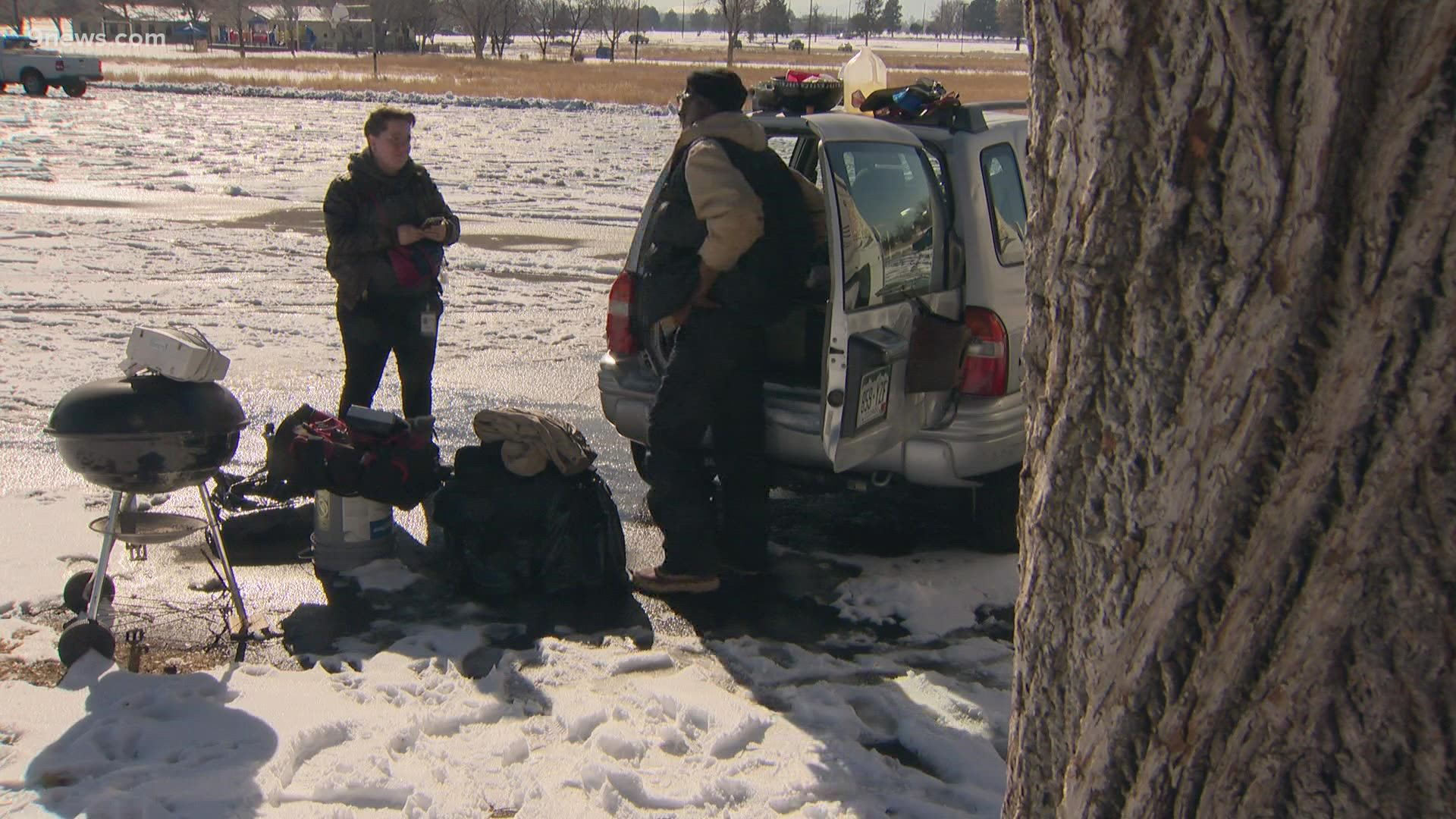DENVER — The annual count of people experiencing homelessness tells us more about the state of homelessness in the Denver metro area, but last year's count was incomplete.
The Metro Denver Homeless Initiative (MDHI) only counted people staying in shelters because of the pandemic.
This year's Point In Time Survey will show a more complete picture, MDHI said.
Emma King is one of many who woke up early on Jan. 24 to look for people experiencing homelessness and interview them.
“So where did you stay on Monday night?" King asked a man who goes by E in Lowry Park in Aurora.
He told her he slept in his car.
King is Aurora's Homeless Programs Liaison. She has a set of questions, created by U.S. Department of Housing and Urban Development (HUD), that she asks every person she encounters who is sleeping unsheltered.
“We’re all closer to homelessness than we are to being millionaires and we’re all one medical bill away from being there, right?" Said King.
The survey is required by HUD for regions to receive funding and to understand the demographics of their homeless populations.
Those demographics might be misleading in the Denver Metro area because of the snowstorm on Tuesday, King said.
"My guess is a lot of people were staying with friends or because it was so bad they found a hotel for the night or went to the shelter where they normally wouldn’t have gone," said King. "So yeah I’m a little concerned it was skewed. But this can happen any year, it just happened to happen this year."
Metro agencies don't make all their decisions based on this survey.
“We’re never saying okay this is the exact amount of people we have here it’s just kind of a guess and gives us a jumping point for the rest of the year," said King.
The Metro Denver Homeless Initiative recently found the number of people who slept without any shelter is higher than previously thought. In a study released last week, they say over the course of 2021 nearly 13,000 people slept in an unsheltered location in the Denver region.
Although the data might not reflect everyone, King expects the numbers to be higher than before the pandemic.
“I think we have a lot more people out here than we did before COVID," she said. "I mean our numbers were already going up before COVID but COVID made it worse."
SUGGESTED VIDEOS: Latest from 9NEWS

